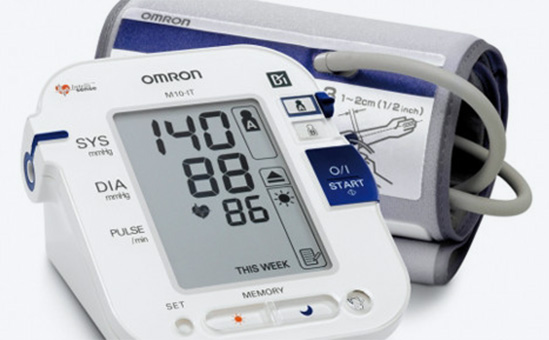An estimated 85% of all clinical trials will experience delays, with 94% being delayed by over a month.1 The financial impact can be massive, costing between $600,000 - $8 million every day.2
Besides the immediate impact on clinical trial budgets, delays can impact the long-term profitability of a drug by reducing its patent window. Estimates vary, and are contested, but whether measured in pounds, euro or dollars, the amount of money lost in clinical trials delays is in the billions, and increasing year on year.3,4
While it’s important to recognise the financial implications of delays, there are some human implications too. Hold ups may place an unnecessary and unwanted burden on patients, which could lead them to exit trials, further exacerbating the problem. And delays in getting drugs to market means delayed treatments, potentially effecting patient outcomes.
We explore some of the common reasons why clinical trials experience delays, and what you can do to avoid them.
Damaging delays
A Nature analysis examining the causes of clinical trial delays found that strategic problems, commercial barriers, and operational issues were to blame in almost a quarter of all trials.4
Similarly, increasing complexity, and interdependencies between agencies and across borders, puts greater demands on project managers to meet deadlines. In recent times, end points in trials have doubled, with the average number of procedures per participant increasing by 58%.5
Frustratingly, site initiation delays are common. Every member of staff should be armed with the correct policies and procedures – as well as fully calibrated and ready equipment – to commence research activities on the site initiation visit (SIV) date. False starts due to missed SIV dates have an immediate impact on trial timelines and, ultimately, profitability for sponsors.
Once a trial is underway, the most common reason for delay is the complex and challenging area of patient retention and recruitment, with many studies failing to recruit in adequate numbers. A study by CenterWatch claims that 69% of patients fail pre-screening, 58% decline consent and 8% drop out after enrolment.6
The importance of site selection is becoming clearer, with researchers adopting a more ‘patient-centric’ approach where the patient’s point of view is clearly considered.7 Having processes in place to receive notifications of poor uptake, and approaches to ameliorate the impact is essential.
A 'business approach' to clinical trials
The complexity of clinical trials has increased, and this calls for more robust and standardised clinical research procedures.8,9 Researchers are being encouraged to take a commercial ‘business approach’ to project management. To help adopt this approach, Imperial Clinical Research Services have created a useful and in-depth guide for clinical professionals on project management.
Similarly, having a tool like a commercial clinical trial management system (CTMS) can help. A CTMS can provide a rigorous and methodical approach to preparing all documents, policies and procedures to support your research, locate them all in one place and help you to manage time effectively.10
However, it’s not just processes that need improvement. Ensuring that clinical research sites are ready to begin receiving patients by the site initiation visit is essential. At MESM, we can work across all of a customer’s study sites to ensure the ancillaries and equipment meet protocol requirements and are ready to use before the trial begins.
Running a clinical trial is complex, but Claudia Schaft at the European Project and Research Office has four simple tips for minimising delays:
- Start work immediately: Be proactive in managing potential delays
- Revisit site assessments regularly: Review all procedures and processes
- Be adaptable: Review your project management approach, and change if necessary
- Build relationships: A responsive project management team needs responsive relationships
Delays in clinical trials are common, but not unavoidable. By understanding the potential risks – and putting processes in place to combat them – your trial can be a success both for the sponsor and the patients taking part. And all within trial budget too.
References:
- Facts about clinical trials. (Online) Available at: http://www.arena-international.com/clinicaltrials/facts-about-clinical-trials/1063.article (Accessed 12.09.17)
- Hargreaves, B. Clinical trials and their patients: The rising costs and how to stem the loss. Pharmafile. (Online) Available at: http://www.pharmafile.com/news/511225/clinical-trials-and-their-patients-rising-costs-and-how-stem-loss (Accessed 12.09.17)
- Mullin, R. Tufts study finds big rise in cost of drug development. Chemical and Engineering News. (Online) Available at: http://cen.acs.org/articles/92/web/2014/11/Tufts-Study-Finds-Big-Rise.html (Accessed 12.09.17)
- Harrison, R.K. Figure 1: Reasons for clinical trials failure 2013-2015. Nature Reviews Drug Discovery 15, 817–818 (2016) doi:10.1038/nrd.2016.184 Available at: http://www.nature.com/nrd/journal/v15/n12/fig_tab/nrd.2016.184_F1.html?foxtrotcallback=true (Accessed 12.09.17)
- Rosenblatt, M. The large pharmaceutical company perspective. N Engl J Med 2017; 376:52-60January 5, 2017 DOI: 10.1056/NEJMra1510069. Available from: http://www.nejm.org/doi/full/10.1056/NEJMra1510069#t=article (Accessed 12.09.17)
- Why do patients drop out of clinical trials? (Online) Available at: http://www.centerwatch.com/images/infographics/WhyPatientsInfographicS.png (Accessed 12.09.17)
- Hurtado-ChongA, Joeris A, Hess D, et al. Improving site selection in clinical studies: a standardised, objective, multistep method and first experience results BMJ Open 2017;7:e014796. doi: 1136/bmjopen-2016-014796. Available from: http://bmjopen.bmj.com/content/7/7/e014796 (Accessed 12.09.17)
- Malikova, M A. Optimization of protocol design: a path to efficient, lowe cost trial execution. Future Science. Published Online:12 Jan 2016 https://doi.org/10.4155/fso.15.89. Available from: https://www.future-science.com/doi/full/10.4155/fso.15.89 (Accessed 12.09.17)
- Farrell B, Kenyon S, Shakur H. Managing clinical trials.Trials. 2010;11:78. doi:10.1186/1745-6215-11-78. Available from: https://www.ncbi.nlm.nih.gov/pmc/articles/PMC2917433/ (Accessed 12.09.17)
- Dagalur, S. CTMS: What you should know. Applied Clinical Trials. (Online) Available at: http://www.appliedclinicaltrialsonline.com/clinical-trial-management-systems-what-you-should-know (Accessed 12.09.17)


